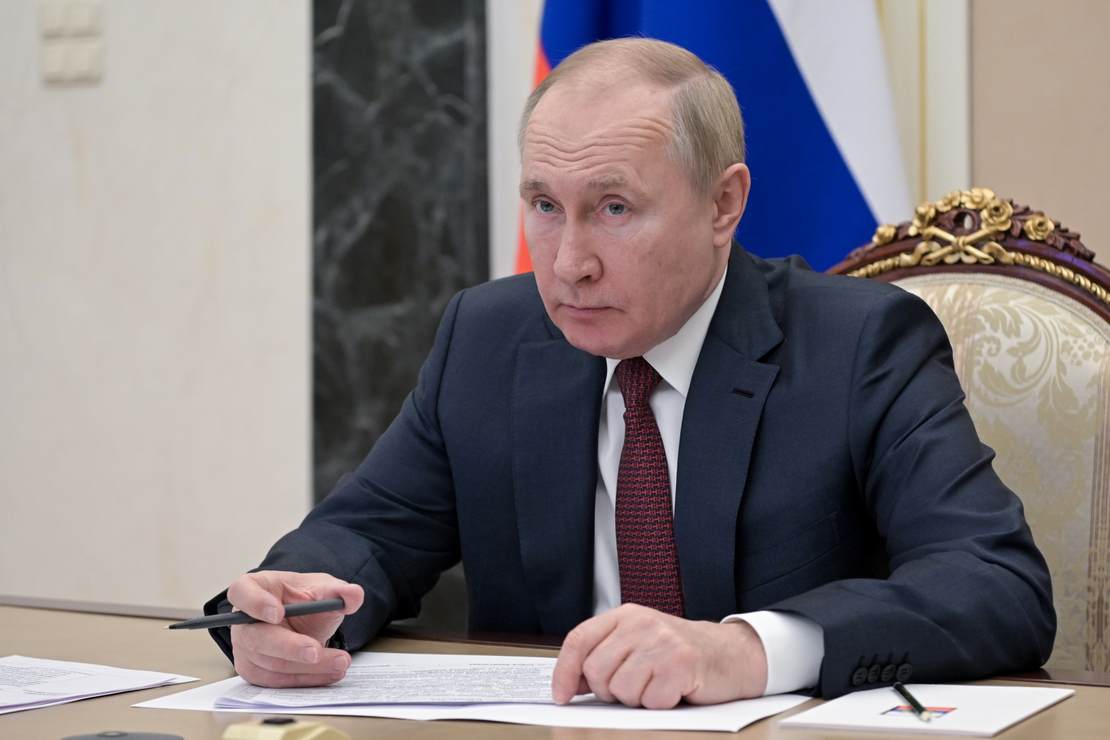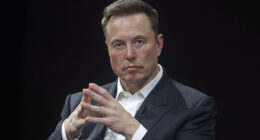
The most ominous detail here is that it was Putin who called Macron, not vice versa. If Macron had initiated the call, it would have been a plea for peace.
With Putin initiating the call, the purpose was almost certainly to warn the west of escalation.
The tsar’s pride is at stake and so many Ukrainians will have to die:
French President Macron fears “the worst is yet to come” after his phone call, initiated by Putin. Putin said he was determined to take control of the whole of Ukraine. #UkraineRussiaWar https://t.co/vII9iioo3q
— Bill Neely (@BillNeelyReport) March 3, 2022
It was Putin who called Macron today, according to the Elysée. The call lasted an hour and a half. Macron told Putin: “you are lying to yourself”. “There was nothing that Putin said that reassured us”, a source in the presidency said. France is preparing for the worst
— Sophie Pedder (@PedderSophie) March 3, 2022
We’re at an odd stage of the war in which the tide seems to be turning towards Russia but Russia also seems to be turning more desperate. The now famous Russian military convoy outside Kiev has curiously stalled out over the past three days, which British intelligence attributes to “staunch Ukrainian resistance, mechanical breakdown and congestion.” And Ukraine is celebrating reports that a top Russian general has been killed by a Ukrainian sniper.
Mass unrest in Russia, or at least a credible prospect of it, is now sufficiently concerning to some Russian leaders that they’ve begun to take official countermeasures:
Russian MPs – including Andrei Lugovoi, of Litvinenko poisoning fame – are introducing a bill to send anyone arrested protesting the war in Ukraine to “perform military service on the territory of the Donetsk and Luhansk People’s Republics” pic.twitter.com/mzJt1bSXV3
— max seddon (@maxseddon) March 3, 2022
But in southern Ukraine, Russia is making gains. The military has occupied the city of Kherson, located between Mariupol in the southeast and the port city of Odessa in Ukraine’s southwest. Kherson’s mayor reports that mass graves are being dug to bury the city’s dead. Ukraine still controls Mariupol but that city is under siege and being shelled ruthlessly. Some residents are without power and water, with only natural gas left for fuel. Residents of Odessa are bracing for impact, knowing that Putin has had his eye on their city for years because of its access to the Black Sea and because Odessans foiled his attempt to take control of it via separatists in 2014.
Meanwhile, Kharkiv in the northeast remains under Russian attack. The battle plan now, it seems, is for Russian forces to try to split eastern Ukraine from the west by securing Kharkiv and Mariupol. If they also take Odessa, troops in the south will be able to advance north towards Kiev while troops in the now-conquered east move west towards the capital. That may explain why the Russian convoy outside Kiev is in a holding pattern for the moment — not because they’re unable to move (or at least, not entirely) but because they’re waiting to link up with troops from the south and east before attacking Kiev en masse.
READ RELATED: EPA Acts to Curb Air, Water Pollution Impacting Minority Communities Along Gulf Coast
What happens then? Can Russia subdue the capital? One U.S. general is skeptical:
But even if Putin’s siege tactics allow the Russians to enter Kyiv, he doesn’t have the troops needed to secure it, said retired Gen. Peter Chiarelli, the former Army vice chief of staff. Putin has deployed more than 150,000 Russian troops to Ukraine’s borders, but not all of them are in the country.
A veteran of the Iraq insurgency, Chiarelli estimated as many as 15% of the population in Baghdad wanted to kill U.S. troops. Kyiv will be far different for Russian troops, who will face near-universal resistance.
“You’re going to move into a city of 3 million people and not one of them is going to come to your aid,” he said. “What a lot of people aren’t understanding is how combat in urban areas just sucks up manpower.”
Chiarelli fears that as Putin’s frustration with the military’s setbacks grows, so will his ruthlessness. Already there are ominous reports circulating about what awaits Ukrainians who resist:
The agency is also planning violent crowd control and repressive detention of protest organisers in order to break Ukrainian morale
— Kitty Donaldson (@kitty_donaldson) March 3, 2022
Could the endgame here be partition, with Putin willing to settle for half a loaf — i.e. Kiev and everything to the east — while Zelensky’s government moves west to Lviv? I don’t think so. Putin’s ego presumably won’t allow it; he made clear in his declaration of war that he intends to take the entire country, as befits his imperial fantasies. Leaving western Ukraine intact would also be dangerous for Russia since the rump state would border multiple NATO countries and have easy access to weapons supplied by sympathetic western nations. Western Ukraine would become the arsenal of insurgency in the east. Weapons shipments to Ukraine are already a big enough thorn in Russia’s side, in fact, that experts have begun to wonder if a desperate Putin will treat them as an act of war committed by NATO against Russia.
“[T]he more it ramps up you wonder how Putin will respond,” said one expert to the NYT. “What happens if he attacks on the other side of the border? We pursue terrorists across borders, why not him?” Russia pursuing weapons suppliers across Ukraine’s border would amount to an incursion into NATO territory, itself an act of war.
One shining fact remains, though: There’s no “good” outcome left for Putin from this adventure, only disastrous and slightly less disastrous ones. Lawrence Freedman:
If there was ever any possibility that this war would end with the complete subjugation of Ukraine by force of arms this has now gone. Nor will it end with Russian forces being chased out of the country. Most likely there will be a negotiated conclusion, probably at the cease-fire talks. Although it is possible to conjure up some document in which the Ukrainians promise not to do things that they would not have done anyway (like develop a nuclear arsenal or be Nazis), and might even make some major concessions, such as accept the loss of Crimea, they must emerge from this ordeal as a free and independent country with no Russian troops on their soil.
It is now as likely that there will be regime change in Moscow as in Kyiv. Machiavelli posed the question of whether it is better for a prince to be loved or feared. His answer was that it was best to be both, but if a choice must be made it had to be fear. ‘If the subjects fear the ruler, that fear guarantees support. They ask themselves: “What will he do to us, if we are disloyal?”’ Putin, who has isolated himself, in all senses of the word, risks now losing that aura of ruthless power that he has carefully cultivated.
Still many deaths to come before we reach that endgame, Ukrainian and Russian alike.
Source:






